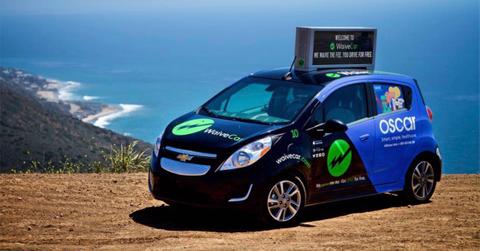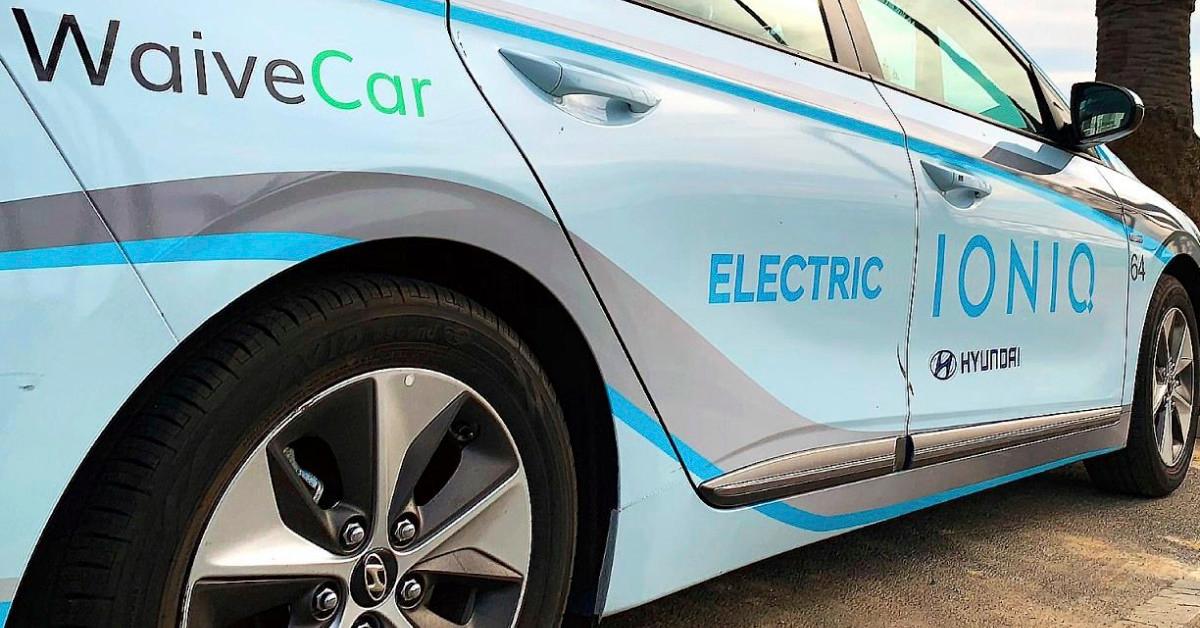Shark Tank Company WaiveCar Promises 'Something Magical' Soon
What’s the update on WaiveCar after its 2017 ’Shark Tank’ appearance? Here's what's happened to the all-electric car-sharing company.
June 29 2021, Published 3:54 a.m. ET
Is WaiveCar done for good, or just preparing for its next act? As of the time of this post, WaiveCar hasn’t posted an update on Facebook or Twitter since Oct. 2019, and its homepage just shows the company logo.
Well, WaiveCar’s Instagram post shows signs of life. “We'll meet again. Don't know where, don't know when. But I know we'll meet again some sunny day!” the company wrote on Instagram in Nov. 2020, quoting the lyrics of a Vera Lynn chestnut.
In an Instagram post in May 2021, the Shark Tank company teased something happening in Santa Monica, Calif., in the summer. “We've been workshopping this for 2 years,” that post reads. “Something magical is coming soon.” And in a comment on that same post, WaiveCar said it was “super excited to start the next chapter of urban mobility.”
The WaiveCar founders struck a deal with Kevin O’Leary on ‘Shark Tank’
Entrepreneurs Zoli Honig and Isaac Deutsch pitched WaiveCar in a 2017 episode of the ABC reality show, seeking $500,000 from their would-be investors in exchange for 2 percent of the company. In the Season 9 episode, Honig and Deutsch described WaiveCar as “the world’s first all-electric and free car-sharing service,” in which drivers could rent electronic vehicles for two hours at no cost, thanks to the advertising on each vehicle. (Their slogan? “We waive the fee, you drive for free.”)
Three of the sharks weren’t convinced. Mark Cuban left the negotiation because “the variability of advertising is crazy.” Lori Greiner did so because she was concerned other companies could take the WaiveCar model. And guest shark Chris Sacca suggested that WaiveCar was “doing R&D” for Uber and Lyft, both larger companies that could steal WaiveCar’s idea if it worked out.
But Kevin O’Leary made an interesting offer: a $500,000, $36-month loan with a 12-percent interest rate in exchange for 4 percent equity and all unsold digital ad inventory. And then Barbara Corcoran made her offer to Honig and Deutsch: “$500,000. No contingencies, no interest rate, no fancy loans. But I want 10 percent of the business, outright. Just 10 percent. Nice, clean, easy, decent.”
After some haggling, the WaiveCar guys agreed to a modified version of O’Leary’s deal, giving him 2 percent equity and the ads at 80 percent off. “I know this company’s gonna be huge,” Honig told viewers. “And I’m gonna do whatever it takes to make it huge. And if you don’t have that kind of blood, sweat, and tears going into your business, then entrepreneurship is not for you.”
The company seems to have hit some speed bumps since then
Posted by WaiveCar on Friday, December 25, 2015
According to Shark Tank Tales, WaiveCar deployed 19 electric cars in Los Angeles and three in New York City, and then introduced its vehicles at California State University, Los Angeles. But the CSULA program was suspended in 2020 amid an insurance switch, according to the University Times, and there’s been no word of the program resuming.
Additionally, the WaiveCar app has disappeared from the Apple App Store and the Google Play Store, Shark Tank Tales reports. So, it seems like the company is down, but pending the Santa Monica project its Instagram post teased, perhaps it’s not out.


